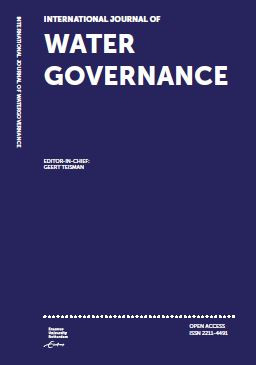The Human(ised) Right to Water and its limits
the case of Israel-Palestine
Keywords:
the human right to water, legal fragmentation, Israeli- Palestinian conflictAbstract
International Human Rights Law (IHRL) is often touted as a champion of justice. My research
questions this proposition by analysing the discursive and legal implications of IHRL’s application
within a greater system of international law and in context of the Israeli-Palestinian water
conflict. The research analyses provisions offered under the Human Right (HR) to water in light
of other relevant bodies of international law and finds that Palestinian water rights are further
limited. IHRL, based on humanised needs, facilitates a legally-compliant threshold that is used
by hydro-hegemons to limit rights and legitimise breaches. The call for equal water rights,
envisioned through the lens of the State, thereby compromises collective water rights and results in
abstract rights-balancing that distort the imbalance of occupied people. Moreover, with HR the
role of agriculture in water consumption is overlooked and thus water rights are further limited.
The research therefore highlights the issue of sovereignty over resources and demonstrates some
problems relating to international legal fragmentation. Lastly, in order to analyse the power that
underlies law, the research examines the Israeli- Palestinian negotiations process and finds that
legal claims are “knocked off the table”. Thus it concludes that HR discourses and international
legal structures become part of the problem rather than the solution and should be deployed with
awareness of their limitations.
Downloads
Downloads
Published
How to Cite
Issue
Section
License
Copyright (c) 2018 https://creativecommons.org/licenses/by/4.0/

This work is licensed under a Creative Commons Attribution-NonCommercial 4.0 International License.


